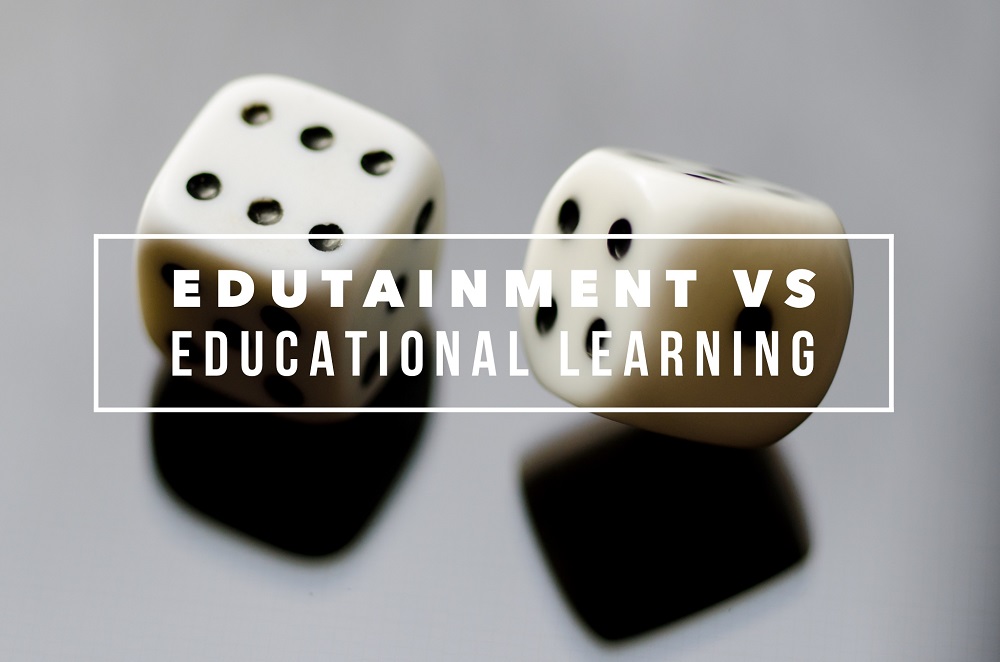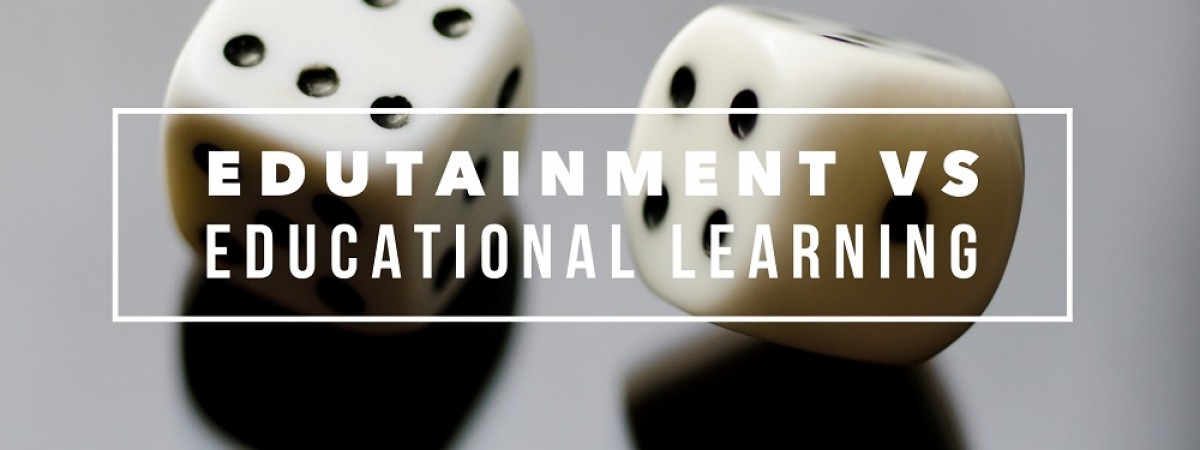Students today live in a world of constant media inputs – from big screens to the minuscule hand-held screens in their pockets. They’re the first generation to grow up with a constant barrage of information – whether useful or otherwise.

Using new technologies to reach pupils can be a double edged sword – you run the risk of fading into the noise, or on the other hand, your methods could stand out for all the wrong reasons.
Two methods that are used to reach through to students come in the form of edutainment and educational media. They both have a place in a holistic view of modern education, but it’s important to note each method’s pros and cons so we can use them wisely.
Edutainment
This portmanteau is fairly self explanatory – edutainment is entertainment that is designed to teach. Think learning to count from The Count on Sesame Street for adults – or video games where knowing your times tables inside out will help you defeat the final boss.
The Pros
One of the main pros of edutainment is the format’s ability to tap into a pupil’s creative side, and engage with them in a playful way. This medium delivers valuable information in a way that assuages any potential fears or prejudices a student may have about dry rote learning, and parcels knowledge into smaller, more manageable chunks.
The Cons
One of the big risks of using only this method is the potential for edutainment to get drowned out by the noise of every day media that students consume. A playful cartoon about tectonic plates becomes another one of hundreds of YouTube videos flicked through in a week.
Since students consume edutainment like any other input, their brains aren’t paying them any special attention, or focusing specifically on the subject material.
Another issue with edutainment, is the creation of an unhelpful and potentially dangerous attitude towards education. The basic concept of edutainment implies that education is boring, learning is difficult and needs to be sugar coated for easy consumption.
Fostering this idea, as opposed to encouraging students to develop a sense of reward from the act of learning itself is dangerous. Education should not be considered a bitter pill to swallow.
Online learning examples of Edutainment:
Educational
Educational media in terms of online learning is simply a combination of technology with modern teaching methods, tried and tested over decades. The emphasis is on focused learning, concentrated study, and fosters self-awareness in students as they are given the tools and skills to take control of their own learning.
The Pros
Using online tools and e-learning for educational purposes rather than for edutainment has one particular strength that edutainment doesn’t – it can stand alone.
Playing ten hours of edutainment games simply won’t stand up next to ten hours of concentrated study, using educational expertise developed by teachers and education professionals over decades.
The act of sitting down to study is one that is driven by intent – an intention to learn, to retain knowledge, and to piece it together within a larger framework of understanding. Combining learning systems with new technology allows for progress tracking, road mapping, personalisation and self assessment in a way that simply wasn’t possible before.
The Cons
The truth is that with some students, traditional learning methods have an image problem. They can seem stuffy and old fashioned, and can be pre-judged as ‘hard work’. Students shouldn’t feel that learning is a chore – and if this attitude already exists, it can be hard to break through.
One of the ways to circumvent this thought process is to give students back control – to allow them to track their progress, understand not just what they’re learning, but why they’re learning it, and how it fits in with the bigger picture.
At FutureSchool, our focus is on high quality, proven methods of delivering educational material, combined with a set of tools that engage – and most of all – empower our students. These elements are what make learning a pleasure, and not a punishment.
This system of learning encourages students to do more than learn enough to ace their exams; instead helping them to develop a full knowledge of the curriculum and beyond, with a deep understanding and striving to instill a love for the act of learning.



Got Something to Say?